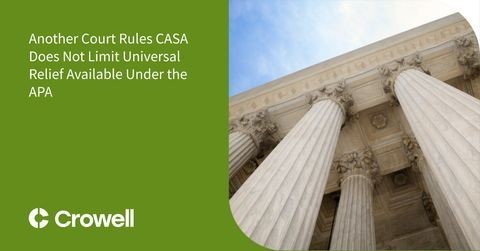ASBCA Finds Stock Option Costs Based on Black-Scholes Model Unallowable
Client Alert | 1 min read | 01.22.18
In Luna Innovations, Inc. (ASBCA No. 60086), the Board determined that Luna’s stock option costs were unallowable (but not expressly unallowable) pursuant to FAR 31.205-6(i), because such costs “constitute[d] compensation that [were] determined by changes in stock prices.” Specifically, the Board concluded that Luna’s stock option costs were unallowable because they were “valued using the Black-Scholes model,” which relies upon five inputs, including the stock price variance. According to the Board, the Black-Scholes model not only “values” a stock option, but “the value is ‘based on’ share price volatility.” Indeed, the Board found that “the volatility measure is one of the most important, if not the most important, inputs into [such model], such that the compensation is ‘based on’ on [sic] asset volatility.” Though the Board concluded that such costs were unallowable, it did not agree with the Government that they were expressly unallowable. In this respect, the Board recognized “significant differences” existed between the Black-Scholes model that Luna used and “the TSR equation at issue in Raytheon and Exelis,” namely that the latter “determined the number of shares to be awarded based explicitly on the change in share prices during the evaluation period.” The Board also pointed out that “the use of the Black-Scholes model [was] a question of firm impression” and “there [were] legitimate differences of opinion regarding the allowability of the costs at issue in this appeal.”
Contacts
Insights
Client Alert | 3 min read | 01.05.26
Another Court Rules CASA Does Not Limit Universal Relief Available Under the APA
In Trump v. CASA, the Supreme Court significantly constrained the equitable authority of federal district courts to grant universal or nationwide injunctive relief, clarifying that, with specific exceptions, a federal court’s power to grant relief is limited to the parties before it. When it was issued, many bemoaned CASA’s implications for preventing government overreach.
Client Alert | 7 min read | 01.05.26
Consideration of Artificial Intelligence in Arbitration Terms of Reference
Client Alert | 4 min read | 12.31.25
Raising the Bar: New York Expands Consumer Protection Law with FAIR Business Practices Act
Client Alert | 4 min read | 12.30.25




